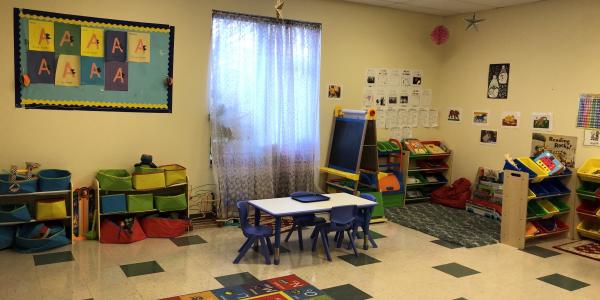NAEYC Member Spotlight: Naila Nazeer

You are here
Among the words that I hear most often when asking members to describe NAEYC are “community” and “resources.” Since the start of the pandemic, NAEYC members like Naila Nazeer have relied even more on the community on HELLO to exchange information, share experiences and perspective, and offer an encouraging word. I also love that Naila has continued to rely on NAEYC publications for the most recent research to work with the children and families in her program. We encourage you to stay connected to NAEYC through HELLO and to find helpful resources through NAEYC books and journals in supporting equity and providing developmentally appropriate practice in our settings!
—Michelle Kang
Naila Nazeer is a preschool teacher with a plan and with a steady dedication to professional development. Currently working at the MTI (Madrasa Tul Ilm) School of Knowledge in Indianapolis, Indiana, the first Islamic school in Indiana serving children in preschool through grade 12, Naila has always wanted to work with young children. As she says, “I’ve always wanted to explore their childhood and grow with them.”
Naila began her career at a child care center serving 3- and 4-year-olds. During this time, she earned her child development associate (CDA) credential and was introduced to NAEYC. A lifelong learner, she has relied on NAEYC resources like the HELLO forum to seek answers to common and not-so-common questions, and she has sought out the latest information on early childhood education topics by returning to journal articles and webinars regularly. NAEYC publications and other resources have especially helped Naila deepen her understanding of children’s social and emotional development and how to partner with families.
As a teacher who prioritizes children’s well-being, even as she continues to learn new principles and techniques, Naila emphasizes the need for strong communication with families. “Having a good relationship with families and ongoing communication with them is very important.” She communicates with families through emails, phone calls, and in-person meetings, as well as a school communication app where she shares pictures and videos of classroom activities directly with families. Through these multiple routes, she learns essential information about each child’s strengths, interests, and areas for growth, and she also learns about the contexts in which they are learning at home and in the community.
For example, after observing a child who was showing anger and resistance to listening to others, Naila invited him to sit with her, and she asked if there was anything they could talk about. He opened up and shared about the challenges he was experiencing outside of school. Naila listened, and she spoke with the child’s family, offering her assistance and connecting them to available resources. Moments like this have reaffirmed for Naila the value of her role as an early childhood educator not just in her program but also in her community.
Relationships and communication with families have also spurred Naila’s own growth as a teacher. “They have always supported me, and they love the way I work with their children.” Partnering with a family helped Naila expand her “toolkit” to provide responsive teaching for a child with autism, especially regarding her own understanding of social and emotional development and individual differences. Such interactions helped Naila enact principles of developmentally appropriate practice. After conversations with his family, Naila learned to better recognize situations in which he might feel overwhelmed, and she also learned about activities and materials that would help him calm down. She learned that he loved puppets; when she noticed he was getting overwhelmed, Naila put on a puppet show for him. “I loved working with him. I wanted him to feel safe and included in the classroom, and I learned so much from working with him and his family.”
Naila’s experience in early childhood education so far has motivated her to continue her professional development, and she is now seeking a certificate in early education administration. Naila aims to become the kind of preschool administrator who ensures staff have ample funding and support to be able to create high-quality environments and to carry out developmentally appropriate practices. She also plans to use NAEYC resources to research how to build on the vast cultural knowledge and assets of children and families in the classroom. Naila beams with enthusiasm when talking about her future goals in a leadership role: “I have so much in mind!” With her passion and focus as an educator and learner, Naila will surely achieve these goals.
SHARE YOUR STORY. Answer a few questions to tell us about your work with young children and what NAEYC membership means to you.
NOMINATE A MEMBER. Share why a NAEYC member you know should be recognized for their work with young children.